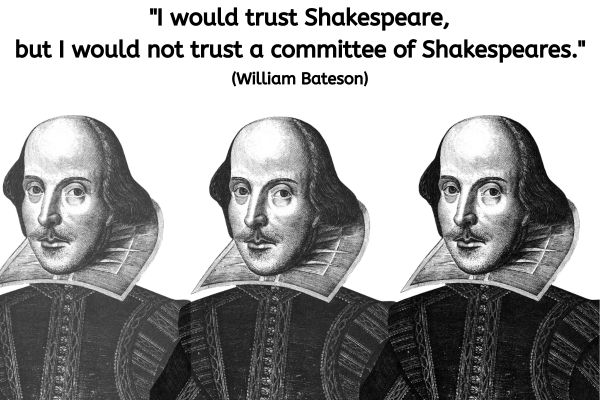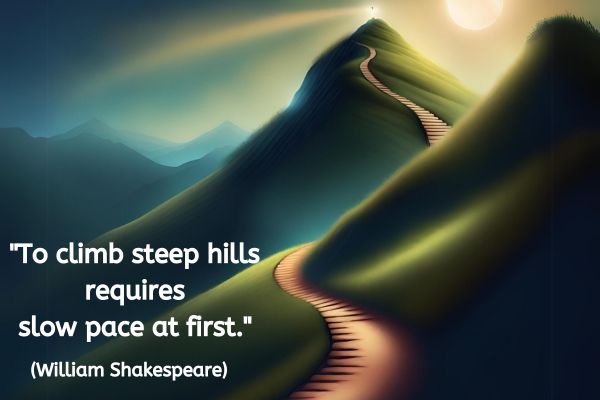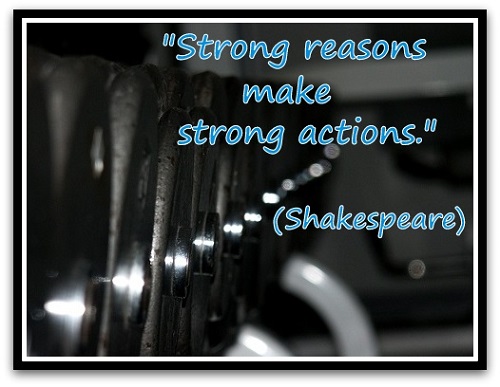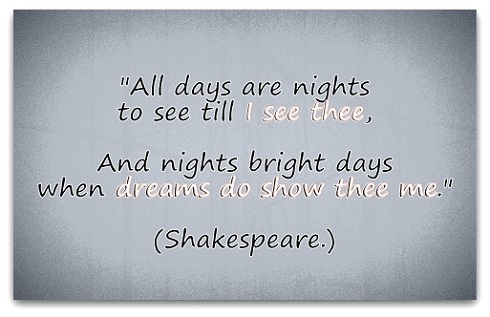This was originally published as a bonus article in the Coaching Confidence weekly email during June 2011. To start getting your very own copy each week enter your details under “Don’t miss a thing!” to the right of this page.
What has Shakespeare got to do with coaching?
The catalyst for last weeks post was observing a workshop that the Royal Shakespeare Company “Head of Voice” Cicely Berry ran. It was a piece based around what we can learn about best practice in other fields and including a few coaching questions. If you missed it you can read it here.
This weeks message will continue with that theme as I also observed a second workshop ran by two top directors working with a group of actors on a particular speech.
You’ll notice that there are coaching questions to consider throughout the piece. Feel free to play with those questions and I invite you to notice which one makes the most difference for you.
Greg Doran is currently Chief Associate Director with the RSC and has been described as “one of the great Shakespearians of his generation.”
John Barton co-founded the RSC 50 years ago and possesses an encyclopaedic knowledge of Shakespeare and is known to be able to identify one of his plays from a single line of text. With such a background of experience and knowledge he shared his perspective about how things have changed.
One of the things he mentioned is that “Now what I do is different to what I did then …Then the basic needs were different.”
The experience of actors and the expectations of the audience not being the same is probably not a surprise when you consider that half a century has passed since the RSC began. If you have a coaching business you may be aware that your dream clients expectations and what they see their needs as being have changed over time.
That may be that you find that potential clients over time approach you with different requirements. It may also be that an individual client, if asked, will say something different at the start as compared with at the end of you working together about what was important to them about your work.
A coaching question to consider: When was the last time you checked what your dream clients expectations and needs are?
In the workshop the actors all had the speech that they were working on, in their hand, printed on paper. One of the pieces of advice that the actors were given was not to read straight from the text and worry about getting the words exact immediately. They were invited to share with audience until that happens. The focus was ”not how to speak the verse but how to make the audience listen”.
A coaching question to consider: What else can you do to make a potential client listen?
If you were to draw connections between the last two points you may say that being aware of when things change allows flexibility in approaches and communication to reflect where someone is now.
As a coach you may be aware of a benefit that your clients value above all else at the need of your work together, however, if that’s not something that they rate as important as a potential client you are likely to struggle to attract their attention initially.
One of the changes that John Barton talked about was that 50 years ago actors had far more experience of working with Shakespeare’s texts in rep theatre etc prior to working with the RSC. This has also brought a change in attitude in those who he works with – “Now actors are perfectly prepared to turn up, knowing nothing, plunge in and find out.”
One of the things that many talk about that you can get from coaching is new insights – which can be thought about as a new thought or perspective not previously seen. As a coach I love when clients are happy to plunge into a conversation and find out what happens.
A coaching question to consider: If you were to let yourself” plunge into a topic and find out,” what would you do differently?
I loved watching two different directors at work with the same group to see each reaction and hear the comments that they made at specific points.
Both directors explained that they had similar approaches about how they work. John Barton said “You do a bit, then I react and pick out what I think will be the most useful for you at this moment.” Whilst Greg Doran said that he was only going to give a “Small nudge [as I] don’t want to say more then I have to, to get you going.” Asking himself “What can I say that’s minimal that will allow them to take off?”
This means that the responses and comments are different for different actors.
Why do I mention this in this piece? I don’t know about you but when I coach one of the questions I’m considering is a variation of “what is going to make the biggest difference at this moment?” And “what is the nudge that is going to get this person going?”
A coaching question to consider: What is the one thing that is going to make the biggest difference for you?
As part of a discussion about the words in the text that the actors were working on they were told, “Words themselves have a life of their own” providing a “series of clues and opportunities, that as long as you know how to read, you can then make it your own.”
As a coach you may be aware that in a coaching conversation sometimes it is certain words that prompts you to ask a particular question. Sometimes it may be a specific statement but other times it may be a clue that suggests a belief or perception that is hindering a client.
One of the things that I can see new coaches hunt for is the “right question” to ask in a specific circumstance. I’ve come to see, over time, that there is often more than one question that can be asked. It’s picking up on the clues and opportunities that allow you to develop your own coaching style that makes a difference for your clients.
There were many, many other areas I could discuss prompted by the examples and comments I saw and heard in that session and the one I wrote about last week. However, if I did this would turn into a piece as long as a Shakespearean play!
So before I go I wanted to share one last thing. That workshop had individuals with a wide range of RSC experience involved – ranging from 50 years to those who had only just joined. They all agreed that the great thing about RSC is “the other stuff that goes on” – it’s a learning environment.
To put this into context; the RSC has some of the best in their fields working for them – to my knowledge, an actor can only audition if they are specifically invited. Yet they are continually asking questions and it’s “impressed on that [we] don’t know it all.” They “encourage you to ask questions and to explore” which was credited with inspiring “investment from the company.”
I invite you to ask questions and explore more this week and see the difference that focus has for you.
Love
Jen
About the Author
 Jen Waller is on a mission to support, nurture and encourage coaching skills and talents from non-coach to coach and beyond.
Jen Waller is on a mission to support, nurture and encourage coaching skills and talents from non-coach to coach and beyond.
She has created a free 7 day e-course about how to create your own unique coaching welcome pack that works for you and your clients. Get your copy here.








 Jen Waller is on a mission to support, nurture and encourage coaching skills and talents from non-coach to coach and beyond.
Jen Waller is on a mission to support, nurture and encourage coaching skills and talents from non-coach to coach and beyond.